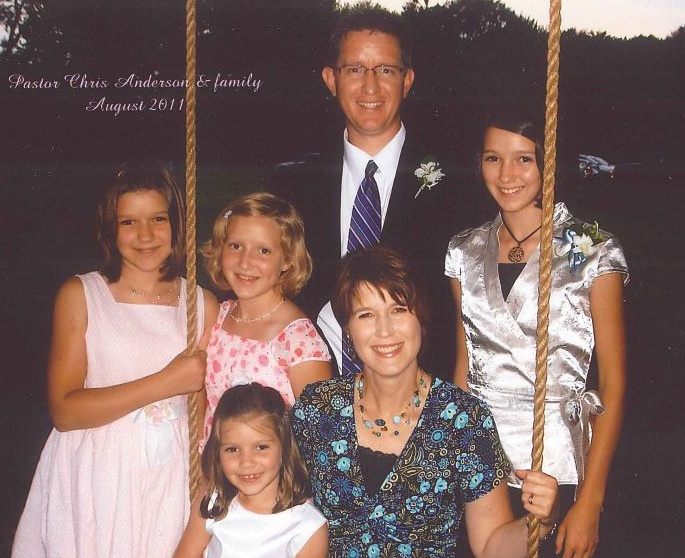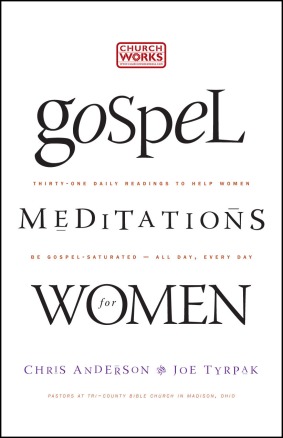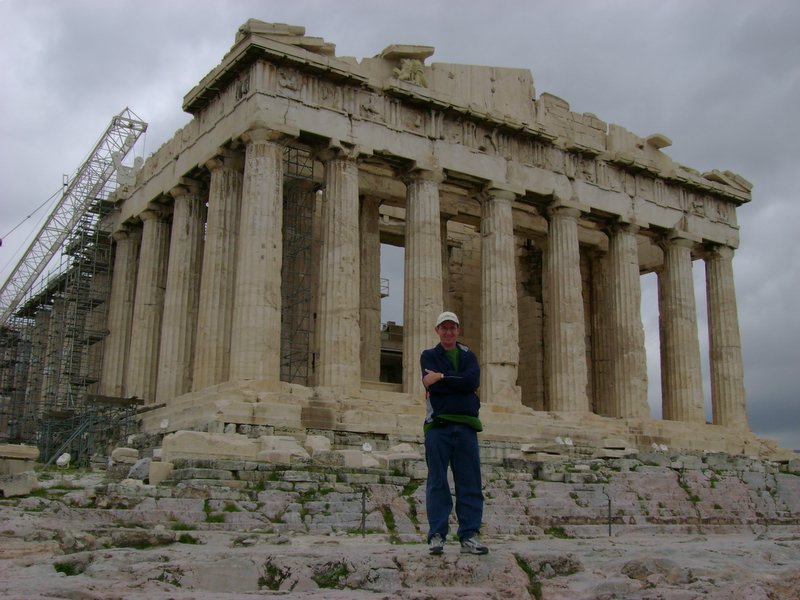I recently made a post on Christ’s final cries from the cross and the theological realities which they represent. I was (and continue to be) especially intrigued by the difference in tone between Christ’s fourth cry (“My God, My God, why have you forsaken me?” ) and His seventh and last cry (“Father, into Your hands I commit my Spirit.” ) As part of my meditations on those cries, I published a conclusion which wasn’t sufficiently thought out and which had an impossible and unorthodox doctrinal implication. I apologize for that. Sincerely. The last thing I want to do is publish ideas that will cloud readers’ understanding of Christ’s work. I did state that I was looking to have my own understanding sharpened—sort of “thinking out loud”—and I asked for input, but I also made a careless mistake. I’m therefore replacing that post with this one, which focuses briefly on the fourth, fifth, and seventh cries from the cross.
1. As I understand the fourth cry, Jesus was literally forsaken by the Father—“God estranged from God,” as the text of His Robes for Mine puts it. The eternal fellowship of the Trinity was disrupted during at least part (though not all) of Christ’s crucifixion. During that time, our sins separated Jesus from God as surely as they separate us from God (Isaiah 59:2). In drinking the dregs of God’s wrath on sin, Christ bore the worst of sin’s wages: utter abandonment by God. Perhaps coinciding with the time of Christ’s great moral darkness, there was a great physical darkness, as well. The sun disappeared in what Mahaney calls “an atmospheric confirmation of the judgment of God” (Living the Cross Centered Life, 91). Jesus responded to this abandonment with His fourth cry from the cross, a cry of absolute anguish: “My God, My God, why have You forsaken Me?” (Matt 27:46; Mark 15:34)
2. Nearing the point of death, Jesus uttered two victorious cries: “It is finished!” (John 19:30) and “Father, into Your hands I commend My spirit!” (Luke 23:46) It is tempting to see these cries as declarations that propitiation had been entirely accomplished. Indeed, we often speak of the “finished” cry as proof that Christ’s sacrifice for sin was entirely satisfactory to God and cannot and need not be repeated or amended. However (and this was the point of my error), to conclude that God’s just wrath had already been satisfied at these specific times would be to suggest (or at least allow) that Christ’s actual death was not necessary—a ridiculous notion, to be sure. Could He have suffered, uttered these cries, then descended from the cross. Obviously not. Even Christian children know that Jesus had to die to pay sin’s wages.
So what was Christ saying when He spoke of a “finished” atonement and of entrusting Himself to His Father? It seems best to take the cries as anticipations of His impending death which would complete the payment of sin’s wages, and not as claims of having already paid them at those precise moments. So while we may reverently speak of Christ’s “It is finished” proclamation as a statement of propitiation, we must do so with the understanding that what finished the atonement was not Christ’s suffering or even His proclamations, but His impending death.
3. For what it’s worth, it still intrigues me to consider Christ’s prayers to God near the outset and end of the crucifixion (“Father, forgive them” and “Father, into Your hands,” respectively) with His cry of forsakenness. It seems to me that He enjoyed communion with the Father at times during the crucifixion but was bereft of the Father’s fellowship during another part of the crucifixion. It’s certainly worth considering.
By God’s grace, I’m growing in my understanding of the Gospel, albeit imperfectly. I want to know it better and deeper yet, and this has been a profitable process of meditation for me. Some good friends will still take exception to my understanding of Christ’s forsakenness, and it may be that my thoughts need to be sharpened further. I don’t doubt it a bit. To that end, please feel free to chime in with your thoughts. Also, learn from my example that even reverent and well-intended interpretations cast long theological shadows. Be careful. Finally, spend some mental and spiritual energy meditating on Christ’s suffering beneath our sins and His Father’s wrath on the cross.
Amazing.
Filed under: Bible Exposition, Devotional Thoughts, The Gospel | Tagged: Christianity, propitiation, Seven Cries from the Cross, the Crucifixion, The Gospel |










I appreciate this meditation very much and pray that the richness of the Gospel will richly permeate our hymnody.
May I ask a theological question/clarification here for my own edification? You said, “The eternal fellowship of the Trinity was disrupted during at least part (though not all) of Christ’s crucifixion.” I understand this to mean that, although Jesus remained fully God, and as such a member OF the Trinity, the fellowship BETWEEN members of the Trinity was broken during this time, thus Christ’s cry of being forsaken by the Father. Am I understanding this issue correctly, or am I missing something that you are trying to carefully delineate?
Hi, Lyn.
My understanding is that the fellowship which the three Persons of the Trinity have eternally enjoyed with one another was interrupted during Christ’s suffering for sinners—that part of the wages of sin was Christ’s being rejected by the Father on account of my imputed sin, just as part of justification is my being received by the Father on accounted of His imputed righteousness.
There are those who disagree with me, seeing in Christ’s quotation of Psalm 22:1 something less than actual forsakenness, or seeing a forsakenness that was judicial but not relational. There are certainly other views as well.
Here is D. A. Carson’s commentary on the event:
While we’re quoting Carson, here’s his take on the 3 hours of darkness:
(Both quotes come from Carson’s Matthew commentary, which is part of the Expositor’s Bible Commentary set.)
Excellent.
And good luck on encapsulating what you have just enunciated in a single line of poetry. :)
Hey Chris,
I was nice that you sought to clean-up your thoughts on this very profound subject. I still maintain that there is a real meaning and difference in the biblical words used for God, i.e. Elohim. And Jehovah (Jehovah-Jeheh= Jehovah will see, or provide, Gen. 22:14, etc. There are 10 Jehovah combinations. Then there is JAH, Jehovah in a special sense and revelation…as “becoming” our Salvation (first seen Ex. 15:2). Then there is EL essentially “the Almighty” El is Elohim in all His strength and power.Then there is Elyon rendered “the most high (God)”. Also Shaddai or always used in connection with El. Used as grace and giver. All-bountiful. Also there is ADON (ADON, ADONAI and ADONIM), all generally rendered “Lord”; but each has its own peculiar usage and association. They all denote headship in various aspects. They have to do with God as “over-lord.” All these names are used in combinations:
God = Elohim
God = Jehovah (in combination with Adonai (“Lord”)
God = El
God = Eloah
Lord = Jehovah
THE LORD = Jah
Lord= Adonai
LORD = Adonim
Almighty = Shaddai
Most High = Elyon
Then there are other combinations:
Adonai Jehovah = Lord God.
Jehovah Elohim = Lord God
Elyon Wl = Most High GOD.
El Shaddai = GOD Almighty
These divine names and titles are very important to see and distingish! If not we will surely go wrong in our biblical interpretations!
DA Carson is a useful exegete. His use of the hymn here is very good. Often we cannot express the deep truths of God, save only with poetic license. In fact the Scripture cannot really be understood without the use of Figures of Speech. Carson nails my point with his statement: “If we ask in what ontological sense the Father and Son are divided, the answer must be that we do not know because we are not told.” If we would speak when the Scripture speaks, and also remain quiet (but certainly still thoughtful in mystery) we would do better with God and His Word!
I am myself a theologian, holding both the D. Phil and Th.D. But before God “our” knowledge means nothing! We must always apply our given gifts and minds alone to the revelation of God and His word. See, 1 Cor. 2: 8-16. Only “In Christ” do we have His mind!
Chris, thank you for your transparency, my friend.
I have been reading Frederick Leahy’s Book “The Cross He Bore.” He actually has the Lord beginning to forsake Christ back at Gethsemane. On pages 4-5 he writes, “But the Suffering Saviour could say it best of all, for there in Gethsemane – the oil press – he was crushed and bruised without mercy. But how and why? How is the sudden and dramatic change of atmosphere between the upper room and Gethsemane to be explained, even in a measure? Christ knew all along that death awaited him. He had grappled with Satan and his legions more than once. He had repeatedly spoken of his death to his disciples, telling them what that death would accomplish. He had prayed with utmost confidence in his high priestly prayer (John 17). Why, then, is there this sudden plunge into such sorrowful agony, why this shuddering horror? Why is this fruit of the olive tree so severely crushed? Why does the divine record say that in Gethsemane our Lord BEGAN to be sorrowful, sorrowful in a new and terrible way? Was it not because God began forsaking him then?”
I am not sure that I had thought of it that way before. Any thoughts?
I think you guys are making too much of the suffering. We are saved by Christ’s death, not his suffering. The scriptures don’t dwell on the details of the suffering (which was horrific) for a reason.
Regards,
Don Johnson
Jer 33.3
Don, the Scriptures also record Christ’s agony in Gethsemane and His cry of forsakenness for a reason. I could understand your concern if we were merely speaking of His physical suffering. However, we are saved not merely by Christ’s death but by Christ’s death under the hand of God—His being made a curse for us. Had he died because He accidentally choked on a piece of fish (and I’m not trying to be irreverent or comical), that wouldn’t have done it. He died under the curse of His Father, in our place. That’s what we’re considering and what the Scriptures emphasize, I think.
Andrew, I’ve understood Gethsemane as Christ’s preparation for bearing our sin and God’s wrath—the precursor to it. I wouldn’t see Him forsaken there at all, especially as that’s the time of fervent prayer and even of angelic encouragement (Luke 22:43). Further, you have Him praying to the Father for the murderers’ forgiveness, etc. much later.
I understand it as Christ recoiling from the prospect of impending judgment, but not yet experiencing it.
If I could add my “two cents” (maybe that’s about all its worth? lol) I would agree with Chris here (and very nicely stated Chris, in my opinion) that the “passion” (KJV) Acts 1:3 or after (meta, Gk.) that He suffered. Here in Acts St. Luke sees and states that the whole is under or after “He suffered” and includes His death. The Greek could be translated: “He died” also. The point to use the KJV translation “His passion” and death are really one piece before us at least.
I hope this helps?
My comment is intended to call for a Scriptural balance, nothing more.
I recall once being very impressed by a detailed description of the crucifixion. It was very moving. I have offered such descriptions. But that isn’t really the Biblical point, because the information isn’t derived from the Scriptures. In fact, quite the opposite. Though the writers of the Gospels were far more knowledgeable about crucifixion as it was practiced than we could ever be, they didn’t give us more than the barest details.
So where is the Scriptural balance?
Regards,
Don Johnson
Jer 33.3
Don,
Perhaps we could turn the question around. In what way was Chris being Scripturally imbalanced?
Did I lose it somewhere… Is this a personal dialog? I am way over here in Ireland, but I appreciate what our brother Don Johnson is saying. I thought I struck some biblical point? Without diminishing Chris’s points. As I said they were nicely put, but I also understand our brother here. We always must seek the balance. And Scripture is always our guide. With some humility hopefully, and a bit of prayer.
Andrew, you’re right, I am probably more reacting to your comments drawn from the book you were reading than from Chris’ post. And perhaps my memory of his earlier post. My apologies!
Regards,
Don Johnson
Jer 33.3
This is in reply to Don Johnsons post on April 9 at 12:35pm.
I could be wrong, but doesn’t Luke 24:46 allude to Christ suffering as including not only His torture, but also His death? Obviously, we could not be saved unless Christ died, but in taking our sins upon Himself, (II Cor. 5:21) to later die to pay for those sins, He would have suffered greatly. It is hard for us as finite unholy creatures to imagine what an infinite holy Creator would go through when He took our sins upon Himself. Revulsion is one term that comes to mind.
Hi Jon
I would take the word “suffer” in Lk 24.46 to mean Christ’s death on the cross. The NET Bible note seems to bear out this interpretation:
FWIW
Regards,
Don Johnson
Jer 33.3
Jon,
This is a great verse: Luke 24:46. It is literally – “Thus it has been written, the Christ to suffer and to rise again from the dead on the third day.” The death of Christ here, is within the word to “suffer” (Greek, to be affected by anything from without, to be acted on..experience of evil, be subjected to evil, receive it, suffer from it). In other words Christ suffered all that evil could bring, and the texts of Col. 2:14-15 comes to mind here, with both His suffering & death; and His rising from the dead the third day! Here He was Victor! “He alone “disarmed” what was against us!
Looks like I missed out on the dialogue. I thought about this a few weeks ago before your post and was thinking about how horrible it must have been for the Son, who had had perfect fellowship with the Father for eternity, to be forsaken even for a few hours while he bore our sin. And I think it shows how much the Father hates sin, that he would turn his back on his perfect son even for a few hours.
My father and I were very close, but we did not have perfect fellowship (of course). And I did some lousy things as a son, but he never turned his back on me. Even with our imperfect relationship it brings tears to my eyes just thinking about my father ever turning his back on me. It’s no wonder Christ was in agony in the garden. I believed he dreaded the turning away of his Father much more than the physical agony. Maybe that’s why the scriptures don’t dwell on the horrors of the physical torture. It was not to be compared with what Christ really suffered as he was clothed in the filth of our sin for those hours on the cross while his perfect Father turned away. How agonizing for both Father and Son…and how wonderful for us.
Praise God for his love for me.
Spot on, Bryan. Great thoughts. Meditating on Christ’s work like that is life-changing.
Brethern, if were gonna use human analogy, is there ever a time when a father would forsake his son? I mean a complete disavowal? Did the “Father” ever forsake the (article) Son? Or was it the holy character and nature of God, “El”…”My God, My God” God as Almighty! And not Jehovah. I just don’t see it! Ever complete separation! The Father and the Son..always in love and the bond or person of that love, the Holy Spirit! See also, Heb. 9: 14, even at the hight of His, can I say “passion”? He and the Spirit are active together toward God. I am just thinking out loud here. I know these are such holy things! I am not being dogmatic, just careful. I hope?
That was “Brethren” I am 58 and a poor typer! lol
Brethren, this subject is immense, we will never understand it fully, this side of glory. Try as we may (and should). I have wriiten (years ago on), on Luther’s Ontology of the Cross. I will not quote. But I have spent much time on this subject (past & present). So it is very personal for me, and brings depth to my soul! I do appreciate this whole blog post, and pastor Chris’s work and desire here. Thanks my brother!
On a personal note, I really love hymnology…and this quote from ELizabeth Barrett Browning’s poem (wife of English poet, Robert Browning) is precious, though so profound! I was rasied in Ireland partly by my great-grandmother. She was part of the so-called “Kelly Brethren” then (PB, or Plymouth Brethren). So she had a great influence in my life. The point to all this, is that ‘the Brethren’ have given the Church, or the Body of Christ, some of the best known hymns, and hymn writers. See their old hymn book: Hymns for The Little Flock. If any of you like hymns like I do, you might want to check it out? Certainly one of my favorite Brethren hymn writers was and is James D. Deck.
Lamb of God! our souls adore Thee,
While upon Thy face we gaze;
There the Father’s love and glory
Shine in all their brightest rays:
Thy almighty power and wisdom
All creation’s works proclaim;
Heaven and earth alike confess Thee
As the ever great “I AM”.
…..last verse
When we see Thee, as the Victim
Bound to the accursed tree,
For our quilt and folly stricken,
All our judgment borne by Thee –
Lord, we own with hearts adoring,
Thou hast loved us unto blood:
Glory, glory everlasting,
Be to Thee, Thou Lamb of God!
We cannot enter into this subject with just our minds, but our hearts must be drawn also. And, here Mrs. Browning’s poem or hymn is so deep and intense! It helps both our mind and heart, and the profundity of our evangelical faith!
Here is a quote that some might enjoy? It is in my personal note book.
“I have often wondered whether we might not say that the Christian doctrine of the Atonement just meant that in Christ God took the responsibility of evil upon Himself, and somehow subsumed evil under good.” (Letters of Principal James Denney to his Family and friends, p. 187)
Irishanglican,
To answer your question, I’ve written more that one last will and testiment, and heard from more than one father, where the son was disinheirited. It does happen. But I don’t believe that God the Father and Son were ever really separated. I believe that while Christ bore our sins, the Holy Father could not look on his Son while he was covered with our (my) sin. The nature of God is holiness. He can not bear to look upon sin. And so God could not, for the first and only time in history, look upon his perfect Son while he hung on the cross as our scapegoat.
I know that God’s ways are infinately higher than our ways. I also remember how sad I was when I disappointed my earthly father and suffered his disapproval. My point was that given the perfect nature of both Jesus and God the Father, how much more terrible would be even a moment of isolation from each other because of the burden of the world’s sin. That would be much more terrible than any physical pain inflicted by man.
Bryan Hayes
Thanks Bryan for your perspective. We would agree that whatever happened on the Cross…the ontology of the Father and the Son was not touched, or divided. As the quote was made by D.A. Carson the Scripture certainly does not tell us about such. This is my main point really. And also somehow the whole Godhead was invloved in our redemption also! Again, we are dealing with divine mystery in my opinion here. It simply cannot be fully sounded out in this our finite minds! Though agreed we must seek to try. This creates depth and continued worship of HIM, who we simply stand in awe and cry: “Holy, Holy, Holy, is the Lord..” (Isa. 6:3)
For an alternative explanation of Christ’s quotation of Psalm 22:1, see my post here: http://chaosandoldnight.wordpress.com/2008/03/20/was-christ-forsaken-by-his-father/